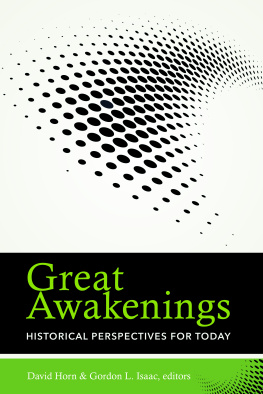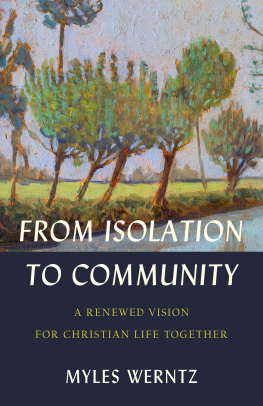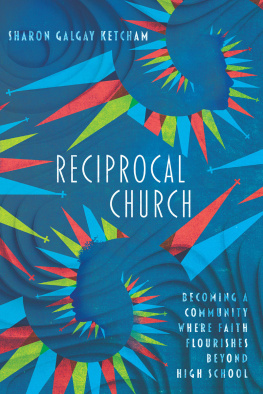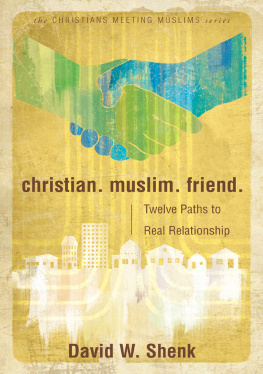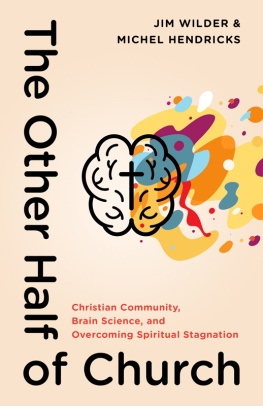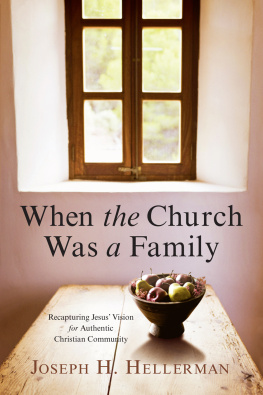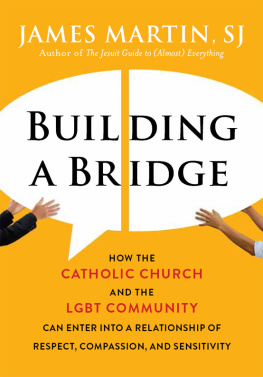All rights reserved. No part of this book may be reproduced or transmitted in any form or by any means, electronic or mechanical, including photocopying, recording, or by any information storage and retrieval system, without permission in writing from the publisher.
Scripture references are taken from the Holy Bible, New International Version, NIV. Copyright 1973, 1978, 1984, 2011 by Biblica, Inc. Used by permission of Zondervan. All rights reserved worldwide. www.zondervan.com. The NIV and New International Version are trademarks registered in the United States Patent and Trademark Office by Biblica, Inc.
Due to technical issues, this eBook may not contain all of the images or diagrams in the original print edition of the work. In addition, adapting the print edition to the eBook format may require some other layout and feature changes to be made.
PREFACE
This book is about the nature of the church. As if we need another book about the church! Our Christian bookstores are stacked like cordwood with practical guides on ways to make our churches larger, our programs more inviting, our worship services more enticing, our leadership more productive, and our small groups more well-rounded.
Most recently, we have turned to other institutional models as a basis for refining what the church should become. Notably, the business world has become our template for doing church. There is now a virtual cottage industry of materials built around ways in which sound business practices can produce the right quantifiable products needed for what is perceived to be a growing and healthy church. Efficiency is the new value that needs to be added to that ancient list of Christian Virtues. After all, efficiency is absolutely necessary for churches where sanctuaries and parking lots extend as far as the eye can see.
Any church worth its salt is now being driven by well-conceived vision statements. Chances are you have probably gone through the process yourself. Your pastor and church leadership, having previously put their heads together, have dragged you and your congregation through a well-orchestrated period of corporate introspection to determine who you are as a congregation and what you should become. Indeed, this practice has seeped to the very edges of our church institutions. No longer is it enough that churches have vision statements; church nurseries now have vision statements, junior high youth programs have vision statements, outreach programs have vision statements, our church kitchens have vision statements.
As helpful as these strategies have been on one level, this trend that increasingly defines the church in functional terms, sometimes to the exclusion of it biblically and theologically, is a disturbing one. There are several scholars who have seen the church dangerously listing in this direction and are seeking to right the ship. I leave them to their task. My task here is to suggest that the institutional functionalism that has taken over conversations about the church is not only wrong-minded, but it largely misses the point for most people in the church.
Listen closely to the average churchgoer. What do you hear in the corridors and foyers and fellowship halls of your church? (I am not talking about church leaders caucusing in the pastors study.) What is being discussed in church members living rooms? Listen. Can you hear what concerns them? Chances are they are not talking about vision statements or church bylaws or ways to make the committee structures work more efficiently. This book takes its cues from the informal conversations of those in our churches.
They are not well-articulated, these informal conversations around the watercoolers of our churches. They are not well reasoned. They cannot be easily reduced to PowerPoint slides. Notice especially that words trail off at the ends of sentences. What these conversations lack in logic, they make up in heartfelt conviction. In fact, these conversations are more about longing than anything elselonging for intimacy.
Ironically, it is perhaps the 20 percent or so in a typical congregation who flit from one church to another at any given locale who are the most articulate on this subject. Listen to these church nomads, these thirsty souls, as they seek to describe why they have left one church oasis in search of another: I just didnt feel a sense of community. The church wasnt very friendly. Or, this church is so inviting. I feel like a part of something here.
It is this impulse toward developing and participating in authentic Christian community that I want to discuss in these next pages. I begin by acknowledging two chief obstacles. The first has already been implied. For all of the rhetoric about Christian community, there is little clarity about what it actually is. What is this relationship we call Christian community? More to the point, is the relationship unique to the church and, if so, how?
Second, most often what we understand to be Christian community tends to be overly sentimentalized. The concept too easily fits into a Hallmark greeting card. Perhaps this is understandable. Relationships are often discussed in such terms, especially highly personal ones. But given all that is at stakegiven the depth of meaning within Scripture and other historical sourcesI will attempt to look at this concept with greater clarity and depth of vision. I dare to do so from multiple perspectives.
First, as one who has shared in the fellowship of true community in a variety of church settings for my entire life, my commitment to this subject is deeply personal. I confess that I cannot look at this topic dispassionately. The practice of Christian community is nothing short of Gods grace being manifest in our lives together. I have fallen victim to this act of grace in so many ways, and I long for others to do so as well.
Second, as one who has been in various forms of ministry all my adult life, I am well aware of the responsibility that pastors have in this area. As pastors look out over their sanctuaries every Sunday, is there a more challenging task set before them than to oversee the nurturing of authentic community within their congregations? Given the countervailing pressures of our culture, the increasing diversity of our people, the seemingly unending impulse toward conflict, and our tendencies toward sin, is true community even possible? How does one lead a church into true Christian community? Perhaps it is this nurturing of authentic community that is one of the lost spiritual disciplines that needs to be reclaimed, especially for pastors.
Third, as one who directed an institute for church renewal for over twenty years, I have committed myself professionally to observing and helping churches become vital and healthy communities of faith. It is one thing to experience vitality and harmony with a community of people at its institutional infancy; it is quite another thing to see a sense of community being sustained through the years as churches mature and grow into their dotage.
Finally, I am a sociologist and practical theologian by education and training. This last perspective reflects my methodological approach in the book. Although I will not attempt to deal with the biblical literature exhaustively, my approach is, first, to offer an understanding of Christian community from a biblical perspective. It is Scripture, after all, that provides the template by which we are to relate to one another as the body of Christ.


